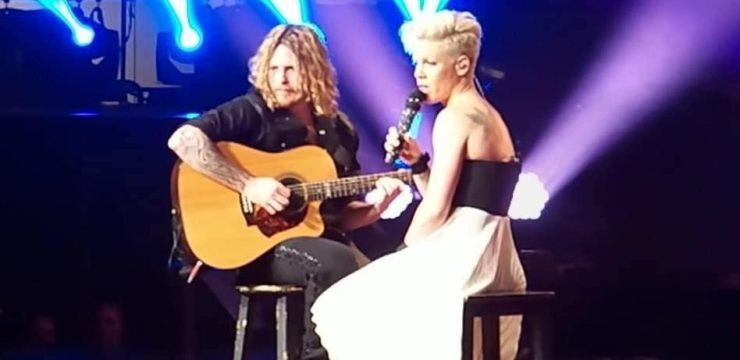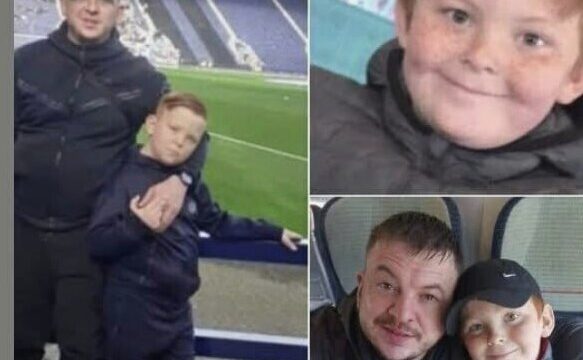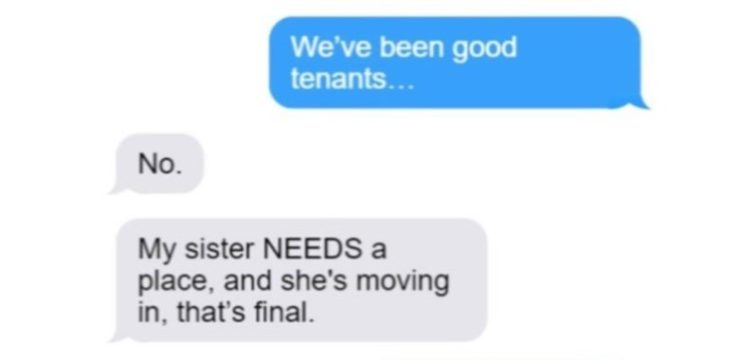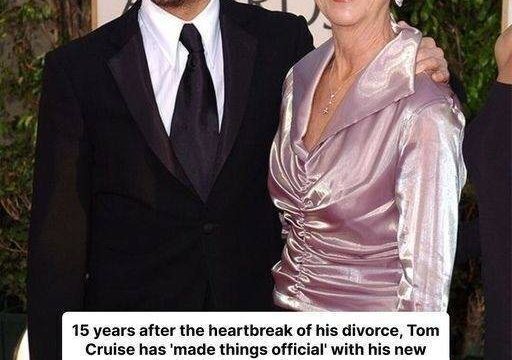Life can be full of unexpected twists, and for Max, his life had been one long road of uncertainty. He had been living on the streets for as long as he could remember, his past a foggy blur. All Max knew was his present reality: the cold pavement underfoot, the constant hum of the city, and a mysterious tattoo on his hand—an intricate design that felt familiar but distant, like a remnant of a forgotten life.
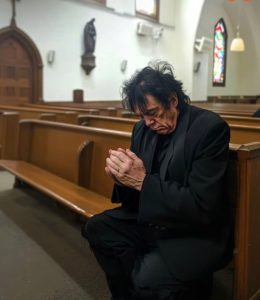
Despite his circumstances, Max had a determination that refused to die. He wasn’t looking for charity; he wanted to work for whatever he could get. Each day, he would wander through different neighborhoods, asking if anyone had small jobs he could do. “Anything you need done? Just a little work for a meal,” he’d say. Some people ignored him, others turned him away, but a few, seeing the sincerity in his eyes, offered him odd jobs: sweeping storefronts or carrying groceries.
With the few dollars he earned, Max would buy clothes from thrift shops, doing his best to stay presentable. Every Sunday, no matter how tough the week had been, Max made sure he looked good enough to attend church. It wasn’t about appearances—it was about holding onto his faith, a lifeline in the chaos of his life. He believed that, somehow, God hadn’t forgotten him.
Then, one Sunday, something extraordinary happened.
Max stood quietly at the back of the church, listening to the priest begin the service. A man, tall and well-dressed in a sharp black suit, entered the church and immediately noticed Max. His eyes lingered on Max’s hand, the tattoo visible as it rested on the pew.
The man’s face froze in shock. He quickly rolled up his sleeve to reveal an identical tattoo on his wrist. Without hesitation, he walked over to Max, his steps quickening as realization dawned.
“Max? Is that really you?” the man asked, his voice filled with disbelief.
Max looked up, confused. “Do I know you?” he asked cautiously.
The man smiled, a tear rolling down his cheek. “It’s me, Patrick! We went to school together—St. Francis Academy. Remember? We got these tattoos as a pact, promising we’d always stay friends.”
Max blinked, the name triggering something in the fog of his mind. “Patrick…”
Patrick nodded. “That’s right! We were like brothers back then. What happened? We lost touch after graduation, and I never heard from you again.”
Max shook his head slowly. “I don’t remember much. One day, I woke up, and everything was gone—my memory, my life. All I had was this tattoo.”
Patrick placed a hand on Max’s shoulder. “Well, that changes today. You’re coming with me. We’ll get you back on your feet.”
Max hesitated, glancing at his ragged clothes. “I’ve been like this for so long, Patrick. I don’t even know where to start.”
Patrick’s warm laugh was reassuring. “Start by coming home with me. You’ll stay at my place until we figure things out. My company could use someone with your work ethic. We’ll find you a role.”
For the first time in years, Max felt a glimmer of hope. “You’d do that for me?” he asked, his voice shaky.
Patrick smiled. “You’re not just a friend, Max. You’re family.”
Ethan’s Dream to Build a Home
While most kids his age spent afternoons playing video games or hanging out with friends, thirteen-year-old Ethan was different. He spent his time running a small lemonade stand outside the trailer park where he lived with his mother. It wasn’t much—just a simple table, a pitcher of lemonade, and a sign that read “Fresh Lemonade – 50 Cents.” But to Ethan, it was the start of something bigger—a dream to change his mother’s life.
Ethan’s mother worked multiple jobs, barely making ends meet. Their old trailer, though a roof over their heads, was worn and full of leaks. Ethan dreamed of giving her something better—a real house where she wouldn’t have to worry about broken floors or rain seeping in.
Every penny Ethan made from his lemonade stand went into a jar hidden under his bed. He called it the “House Fund,” and every day, he imagined it growing large enough to buy his mom the home she deserved.
Ethan’s ambition didn’t stop there. Besides selling lemonade, he looked for more ways to earn money. He polished shoes near the bus station, washed windows for local stores, and even helped elderly neighbors carry their groceries. Despite his busy schedule, Ethan always kept up with his schoolwork, knowing that a good education was crucial for a better future.
One particularly hot afternoon, a man in a sleek black car pulled up to Ethan’s lemonade stand. The man, dressed in a sharp suit, stepped out and walked over, his presence out of place in the run-down neighborhood.
“Hot day,” the man said, reaching for his wallet. “I’ll take a lemonade.”
“Sure thing,” Ethan replied, pouring a glass.
The man sipped his drink, observing Ethan. “You’re quite the entrepreneur,” he said. “How long have you been doing this?”
“About a year,” Ethan answered. “I’m saving up to buy my mom a house.”
The man raised an eyebrow, impressed. “That’s a big goal for someone your age. Tell me more.”
Ethan shared his story, explaining his mother’s struggles and his dream to provide a better life for her. The man listened carefully, nodding as Ethan spoke.
When Ethan finished, the man smiled. “You’ve got a lot of heart, kid. More than most people I know.” He pulled out a crisp hundred-dollar bill and handed it to Ethan. “Consider this an investment in your future.”
Ethan’s eyes widened in disbelief. “I… I can’t take that,” he stammered.
“Sure you can,” the man insisted. “And I’m going to help you get where you want to go.”
The man, who introduced himself as Mr. Harrison, wasn’t making empty promises. The next day, he sent tutors to work with Ethan, helping him excel in school. With their guidance, Ethan’s grades improved, and his confidence soared.
Years later, Ethan’s hard work paid off. He earned a scholarship to a prestigious college, and after graduating, found success in the business world. But through it all, he never forgot his dream.
One bright morning, Ethan stood with his mother in front of a beautiful new house. “I told you I’d build you a house,” Ethan said, his voice thick with emotion. “Welcome home, Mom.”
The Homemade Jersey That Saved the Day
When a new trend swept through Dylan’s school, all the kids were obsessed with superhero-style jerseys—flashy, colorful, and expensive. Almost everyone preordered one, except for Dylan. Living with his grandmother, Mrs. Hargrove, money was tight. Still, Dylan couldn’t help but long for one of those jerseys.
“Grandma, everyone’s getting these superhero jerseys. Can I get one too?” Dylan asked hopefully.
Mrs. Hargrove winced when she saw the price tag. “I’m sorry, Dylan. We just can’t afford it right now.”
Dylan hid his disappointment, but Mrs. Hargrove wasn’t one to let her grandson down. That night, she stayed up knitting a homemade jersey, pouring all her love into the stitches. By morning, she held up her creation with pride.
At breakfast, she presented the jersey to Dylan. “I couldn’t buy you one from the store, but I made this for you.”
Dylan’s heart sank. The jersey wasn’t what he had imagined—it was a bright, hand-knitted sweater, far from the sleek jerseys his classmates had. But he forced a smile. “Thanks, Grandma. It’s great.”
On Monday, Dylan wore the homemade jersey to school, dreading the reactions. Sure enough, the teasing began as soon as he walked through the door. “Nice sweater, Dylan. Did your grandma make it?” one kid snickered.
Dylan tried to brush it off, but by lunchtime, he had enough. He ran home in tears, collapsing into his grandmother’s arms. “They laughed at me, Grandma.”
That afternoon, Mr. Pickford, Dylan’s teacher, paid a visit to Mrs. Hargrove. The next day, Dylan’s dread turned to surprise when he entered the classroom. There was Mr. Pickford, standing in front of the room, wearing a sweater just like Dylan’s.
“Check out my new superhero jersey!” Mr. Pickford announced, striking a pose. “Mrs. Hargrove made it for me.”
The kids fell silent, then one by one, admiration replaced their teasing. “Wow, that’s actually cool,” one said. Soon, other kids were asking if Mrs. Hargrove could knit them jerseys too. Dylan couldn’t believe it—his grandma’s creation had gone from joke to trend.
In the end, Dylan wore his homemade jersey with pride, knowing that his grandmother had turned an embarrassing situation into something special. To him, it wasn’t just a jersey—it was a reminder of her love.
